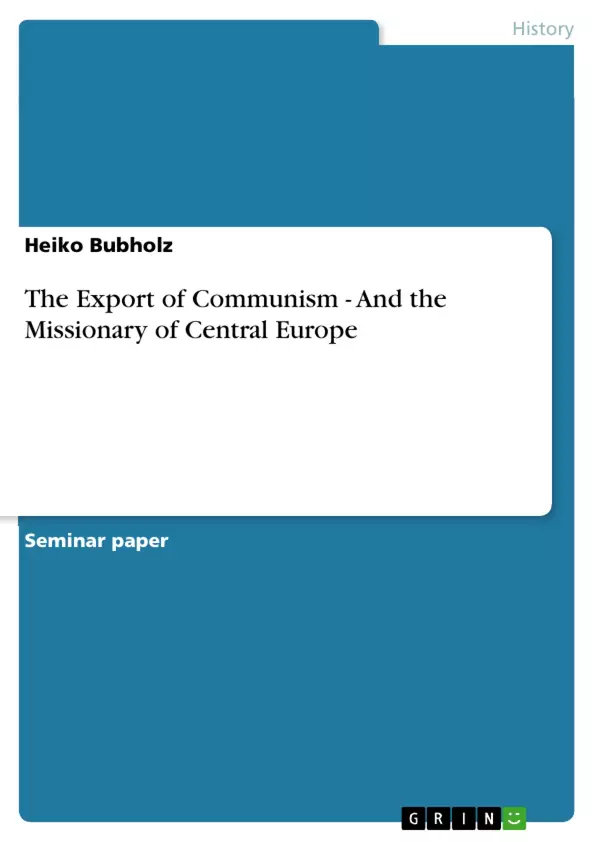I remember November 9, 1989, listing the East German news. The preceding weeks and months left a smell or at least some doubts that something is going not the „socialist“ way, which it is supposed to do. It began in the summer of this year in Hungary, was followed by the occupation of several embassies of the Federal Republic of Germany throughout the so-called East block. It was finally caricatured by the ceremonies to the 40th anniversary of the proclamation of the German Democratic Republic, while the presence of Gorbatschow was perceived as the visit of a future liberator rather than the ruling head of the suppressing and dominating “Great Brother”. As a child, raised and taught in the socialist way, I had the opportunity to witness this truly historical event. The Iron Curtain, symbolised in East Germany through the existence of a white painted wall, fell at 6:57 p.m. 1. Rather accidentally, it was broadcast in a news conference all over East Germany. Today, November 9, 2001, twelve years later, I am sitting in Kraków enjoying the opportunities the „new“ and formerly alien system has bought with it.
Hence, it seems time for me to reconsider – though limited – the experiences I could make. Therefor I would like to elaborate what the “socialist” or better Marxist-Leninist system was, how this ideology developed during several periods in history, and whether or how it moved after the World War II from the Soviet Union to the occupied or conquered regions of Central and Eastern Europe.
[...]
Inhaltsverzeichnis (Table of Contents)
- Introduction
- Terminology and Definitions
- Marxism
- Leninism
- Marxism-Leninism and Communism/Socialism
- Communist Ideology and Panslavism
- The “Missionary” of Central Europe
- War time efforts
- Post-war area
- Conclusion
Zielsetzung und Themenschwerpunkte (Objectives and Key Themes)
This text explores the development and spread of Marxist-Leninist ideology, specifically focusing on its implementation in Central and Eastern Europe after World War II. It aims to analyze the historical context and processes behind the "export of communism" from the Soviet Union to these regions.
- The evolution of Marxism and Leninism as distinct ideologies.
- The role of Panslavism in the spread of communist ideology.
- The influence of Soviet policies on the development of communist regimes in Central and Eastern Europe.
- The experience of living under a Marxist-Leninist system, as seen through the author's personal perspective.
- The historical significance of the fall of communism in Eastern Europe.
Zusammenfassung der Kapitel (Chapter Summaries)
- Introduction: This chapter provides a personal reflection on the historical event of the fall of the Berlin Wall in 1989. It introduces the overarching theme of the text, which is to explore the nature and history of the Marxist-Leninist system in Eastern Europe.
- Terminology and Definitions: This chapter defines key terms such as Marxism, Leninism, and Marxism-Leninism, highlighting the different interpretations of these ideologies across the East and West. The author also clarifies their own background and perspective shaped by both "socialist" and Western influences.
- Marxism: This chapter examines Marx's theories, drawing on his extensive writings and his connection to the Friedrich Schiller University of Jena. It discusses the key elements of Marx's economic arguments, his concept of class struggle, and his prediction of the eventual overthrow of capitalism.
- Leninism: This chapter explores Lenin's contributions to Marxist thought and his efforts to adapt Marx's ideas to the specific context of the Russian Empire. It emphasizes the differences in the interpretation of Marx's philosophy between Eastern and Western perspectives.
Schlüsselwörter (Keywords)
The primary themes of this work are Marxism-Leninism, communism, the export of communism, Central and Eastern Europe, Soviet Union, Panslavism, the fall of communism, and the historical experiences of living under a Marxist-Leninist system.
Frequently Asked Questions
What is meant by the "export of communism"?
It refers to the process by which the Soviet Union implemented and spread Marxist-Leninist systems to Central and Eastern European countries following World War II.
How do Marxism and Leninism differ?
Marxism is the original economic and social theory by Karl Marx, while Leninism is Vladimir Lenin's adaptation and practical implementation of those ideas within the Russian context.
What role did Panslavism play in this ideology?
Panslavism was sometimes used as a cultural and political tool to strengthen the ties between the Soviet Union and other Slavic nations in Eastern Europe under the communist banner.
What was the significance of the fall of the Berlin Wall in 1989?
The fall of the wall symbolized the end of the Iron Curtain and the beginning of the collapse of Marxist-Leninist regimes across Central and Eastern Europe.
How did the author experience the socialist system personally?
The author was raised and taught in the socialist way in East Germany, providing a first-hand perspective on the transition to the "new" system after 1989.
- Quote paper
- Heiko Bubholz (Author), 2002, The Export of Communism - And the Missionary of Central Europe, Munich, GRIN Verlag, https://www.grin.com/document/5542



